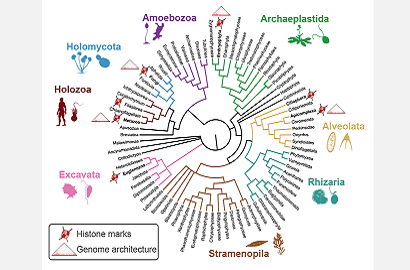Google Opens Cybersecurity Centre in Malaga

The US company is set to invest ten million dollars to improve training against cyber-attacks
Google has opened the Google Safety Engineering Center (GSEC) in Malaga, which, in the words of Kent Walker, the company's president of global affairs, “will enable us to redouble our efforts to make the internet a better and safer place”. The new centre will seek to respond to increasingly sophisticated, costly, and aggressive cyber threats that, according to Walker, “undermine the trust essential to creating a vibrant and inclusive society”.
The GSEC Malaga is an open space for collaboration between European experts, academics, companies, and governments. It is intended to foster discussions on best practices and share research and knowledge to achieve security advances that benefit everyone. According to Phil Venables, Google Cloud's chief information security officer, it will forge its way as “one of the flagships of cybersecurity in Europe”.
New large-scale tools
The new centre will also be home to Google teams and experts conducting research to develop and deploy new large-scale tools designed to combat increasingly sophisticated threats in cyberspace. Its three pillars will be speed of response, open source and artificial intelligence (AI).
The Malaga centre is Google's third cybersecurity centre in Europe after Dublin and Munich. The new facilities will provide support to institutions, both to strengthen their protection and to enhance their knowledge of cybersecurity. There will be a dedicated training area catering for bodies and organisations of all sizes, including self-employed professionals.
The role of AI
So far, Google has already trained 12 million people in digital skills in Europe. This work will be enhanced by a $10 million investment through Google.org. As an increasingly prominent tool, AI will, as a VirusTotal report has confirmed, identify malicious code faster, more accurately and more usefully than traditional tools.
The report by VirusTotal, a Malaga-based company that was acquired by Google in 2012 and maintains its headquarters in the Andalusian city, highlights the shortage of malware analysis experts despite the fact that malware is one of the most serious cybersecurity threats in Europe today. AI cannot only help to close this gap but can complement traditional techniques to speed up malware detection and increase accuracy. It even makes it easier for non-security experts to detect threats and prevent them.
As Venables explains, cyber-attacks grew by 38% worldwide in 2022, and 43% of European SMEs have suffered a cyber-attack in the last two years. In order to address the chronic shortage of talent on the continent, with only 500,000 cybersecurity professionals and a 25% female ratio, part of the $10 million investment announced by the US company will go towards the new centre in Malaga, while eight universities in European countries, including Spain, will receive one million euros to promote a programme of seminars on cybersecurity.
Photo: Google




